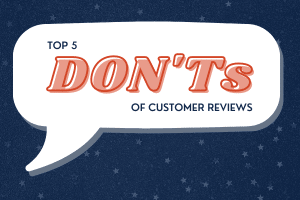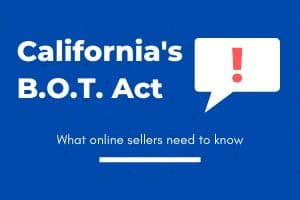
New FTC Endorsement Guidelines: 8 Things Brands and Marketers Need to Know
The FTC released revised guidance for sponsorship disclosures. Our lawyers break down the most important things you need to know.
Schedule a confidential consultation! CONTACT US

“Communication was amazing with fast responses to all emails and questions.
SEE OUR CUSTOMER REVIEWSSchedule a confidential consultation! CONTACT US
Schedule a confidential consultation! CONTACT US

“Communication was amazing with fast responses to all emails and questions.
SEE OUR CUSTOMER REVIEWSSchedule a confidential consultation! CONTACT US

The FTC released revised guidance for sponsorship disclosures. Our lawyers break down the most important things you need to know.

A lawsuit from America’s consumer watchdog will almost certainly do more damage to your business than a 1-star review ever could.
After a new Illinois law went into effect on January 1, 2020, which requires state residents to pay sales tax
Is the University of Phoenix is a “scam school”? That’s what an FTC commissioner insinuated after the for-profit college agreed
Can employees post product reviews? As online marketing attorneys, we hear the question a lot — but the answer isn’t
Last year, a hacker sent a journalist a tip: Someone uncovered an exploit in a “stalking app” and accessed reams

Over 80% of brands use social media influencers to promote products. But leagues of those companies are unwittingly exposing themselves

Facebook’s legal tango with the FTC has come to an end, for now. After the 16-month investigation, they’ve reached a

If you run an online shopping platform, take two minutes to read about California’s new chatbot disclosure law: the B.O.T.
It’s a jungle out there. With marketing saturation at peak capacity, gaining exposure — whether you’re an influencer, retailer, non-profit,
Sales are a staple of the e-commerce ecosystem, but rules do apply. For example: Perpetually advertising an item at a
Contracts and agreements are a huge part of the e-commerce ecosystem. And despite the commonly accepted wisdom that we should
“Kidfluencers” are the new supermodels. Brands, from Crayola to Carnival Cruises, are courting young social media stars. In some cases,
Fill out this form to schedule a confidential consultation with one of our highly-skilled, aggressive attorneys to help you tackle any tax or legal problem.
Or, you can call us at
Fill out this form to schedule a confidential consultation with one of our highly-skilled, aggressive attorneys to help you tackle any tax or legal problem.
Or, you can call us at
Submit your information to schedule a confidential consultation, or call us at (847) 580-1279